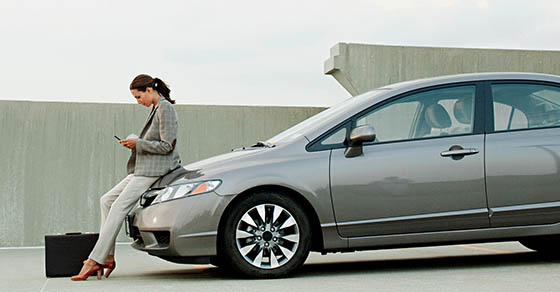With higher gas prices in 2022, the IRS increased the business cents-per-mile rate to 65.5 cents per mile (a 3-cent increase from the 62.5-cent rate that applied during the second half of 2022). These rates apply to electric, hybrid, gasoline, or diesel powered vehicles used for business.

How rate calculations are done
The 3-cent increase from the 2022 midyear rate is somewhat surprising because gas prices are currently lower than they have been. On December 29, 2022, the national average price of a gallon of regular gas was $3.15, compared with $3.52 a month earlier and $3.28 a year earlier, according to AAA Gas Prices. However, the standard mileage rate is calculated based on all the costs involved in driving a vehicle — not just the price of gas.
The business cents-per-mile rate is adjusted annually. It’s based on an annual study commissioned by the IRS about the fixed and variable costs of operating a vehicle, including gas, maintenance, repair and depreciation. Occasionally, if there’s a substantial change in average gas prices, the IRS will change the cents-per-mile rate midyear, as it did in 2022.
Standard rate versus actual expenses
Businesses can generally deduct the actual expenses attributable to business use of vehicles. This includes gas, oil, tires, insurance, repairs, licenses and vehicle registration fees. In addition, you can claim a depreciation allowance for the vehicle. However, in many cases, certain limits apply to depreciation write-offs on vehicles that don’t apply to other types of business assets.
The cents-per-mile rate is beneficial if you don’t want to keep track of actual vehicle-related expenses. With this method, you don’t have to account for all your actual expenses. However, you still must record certain information, such as the mileage for each business trip, the date and the destination.
Using the cents-per-mile rate is also popular with businesses that reimburse employees for business use of their personal vehicles. These reimbursements can help attract and retain employees who drive their personal vehicles a great deal for business purposes. Why? Under current law, employees can’t deduct unreimbursed employee business expenses, such as business mileage, on their own income tax returns.
If you do use the cents-per-mile rate, keep in mind that you must comply with various rules. If you don’t comply, the reimbursements could be considered taxable wages to the employees.
The standard rate can’t always be used
There are some cases when you can’t use the cents-per-mile rate. It partly depends on how you’ve claimed deductions for the same vehicle in the past. In other situations, it depends on if the vehicle is new to your business this year or whether you want to take advantage of certain first-year depreciation tax breaks on it.
As you can see, there are many factors to consider in deciding whether to use the standard mileage rate to deduct vehicle expenses. Ask your Rudler, PSC advisor if you have questions about tracking and claiming such expenses in 2023 — or claiming 2022 expenses on your 2022 income tax return. Contact us at 859-331-1717.
RUDLER, PSC CPAs and Business Advisors
This week's Rudler Review is presented by Jonathan Peul, Staff Accountant and Janna Fitzwater, CPA.
If you would like to discuss your particular situation, contact Jon or Janna at 859-331-1717.


As part of Rudler, PSC's commitment to true proactive client partnerships, we have encouraged our professionals to specialize in their areas of interest, providing clients with specialized knowledge and strategic relationships. Be sure to receive future Rudler Reviews for advice from our experts, sign up today !